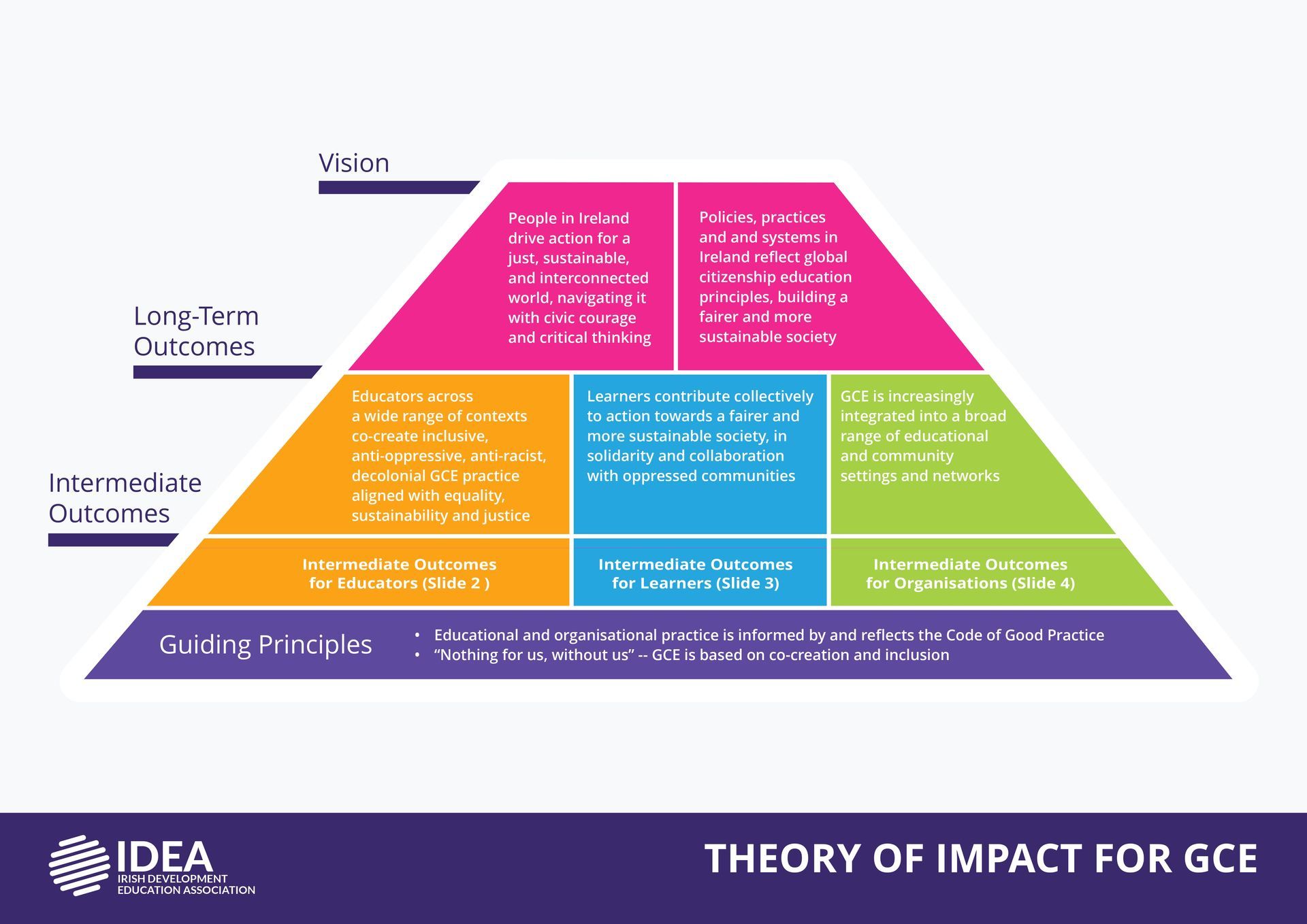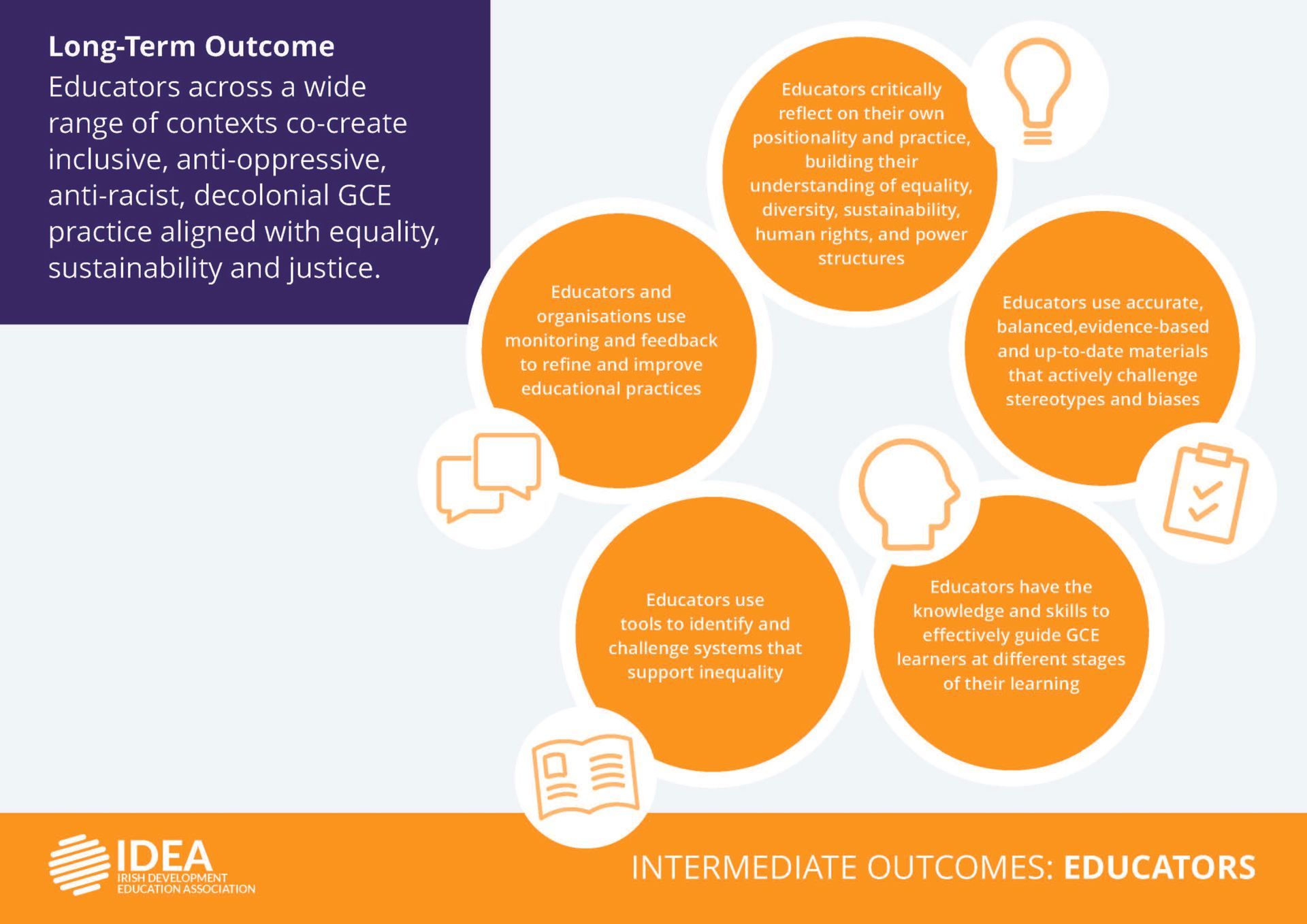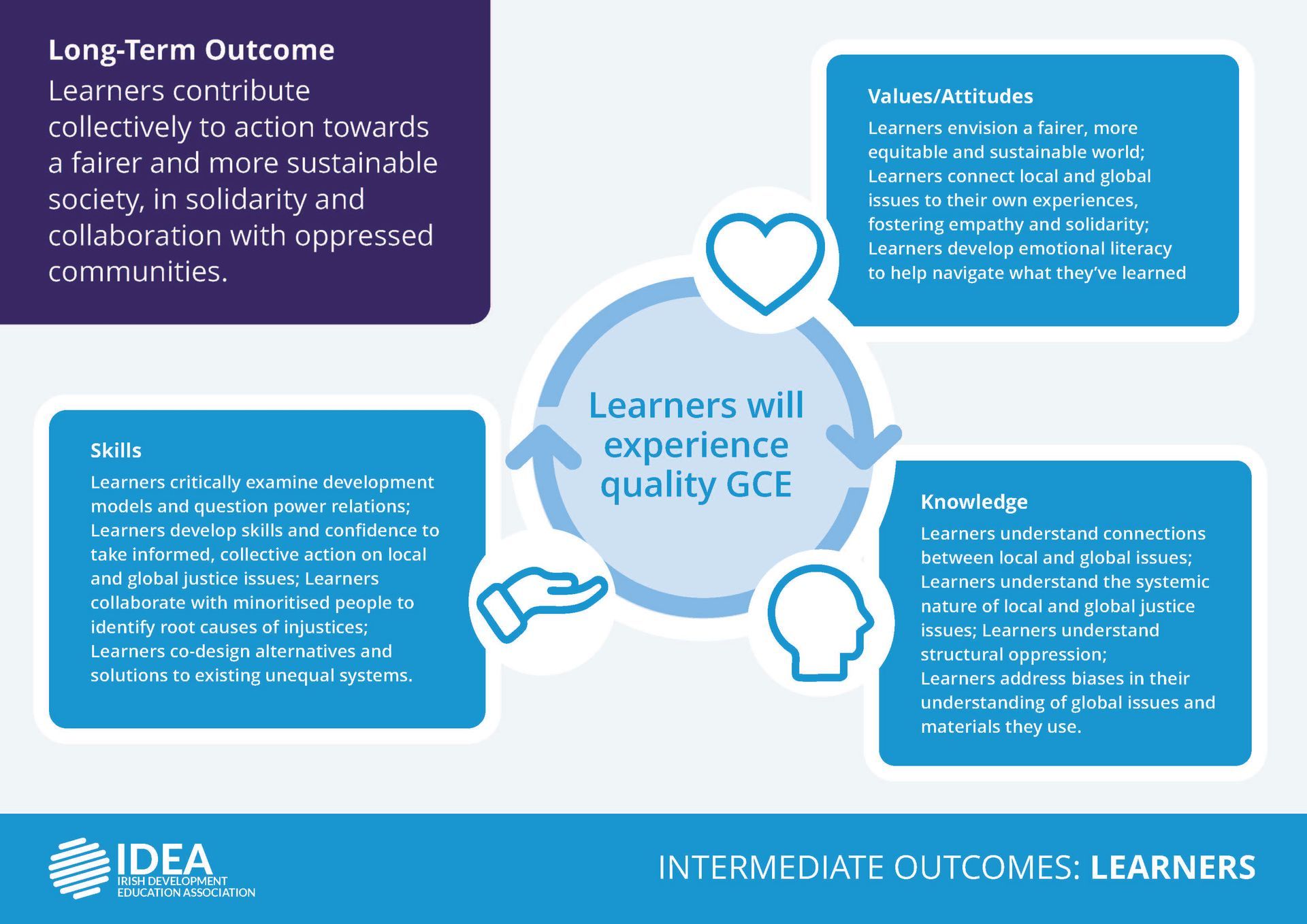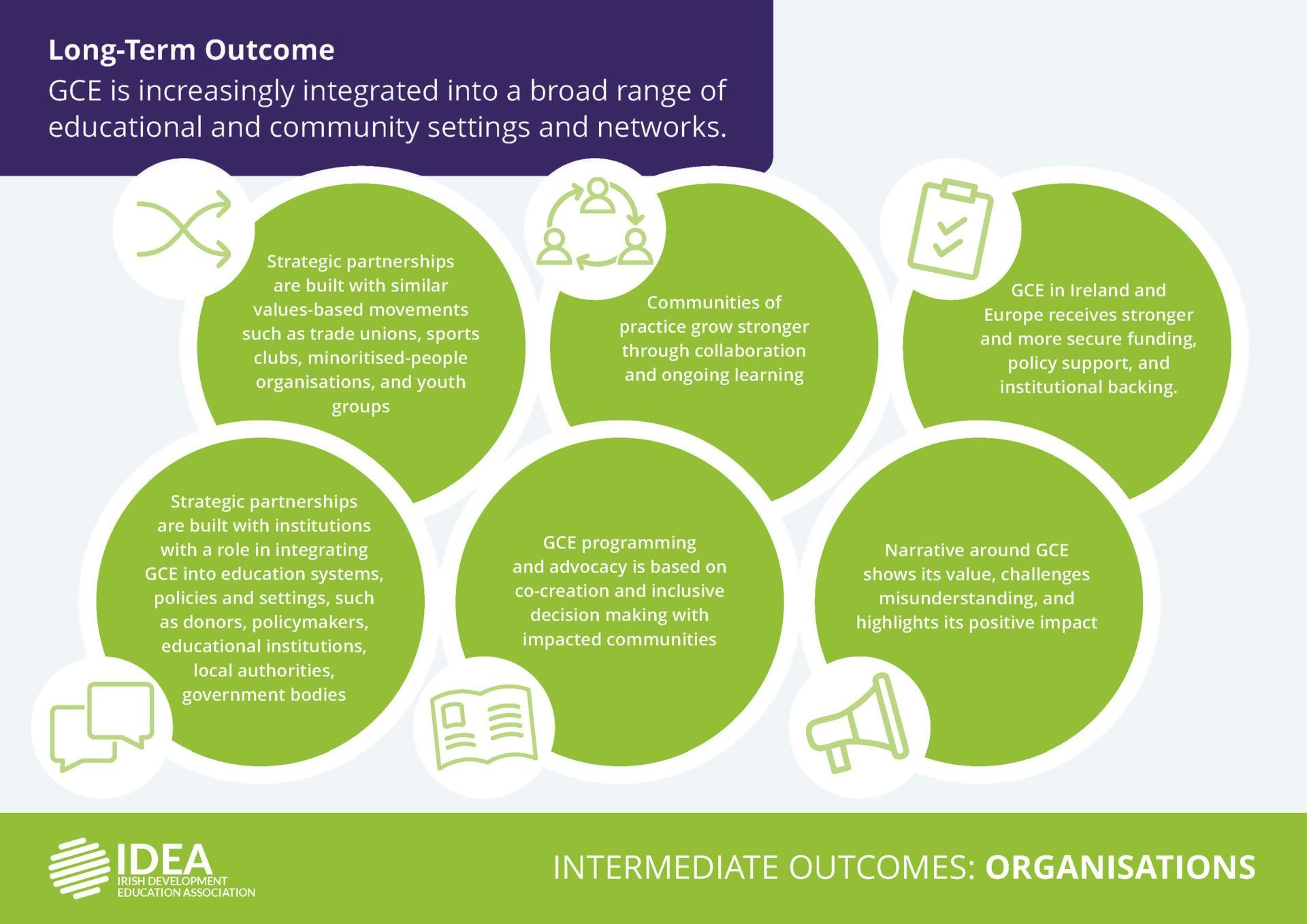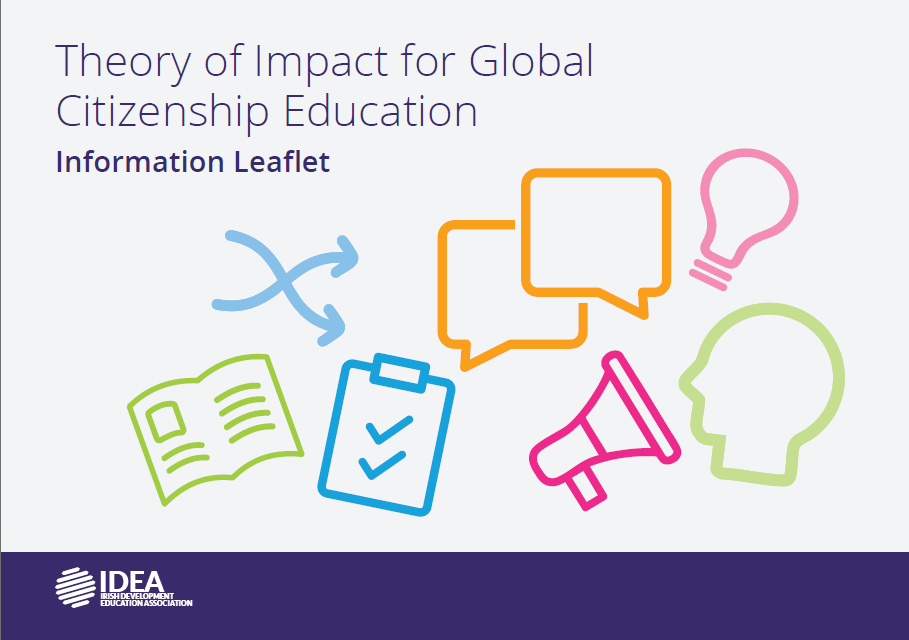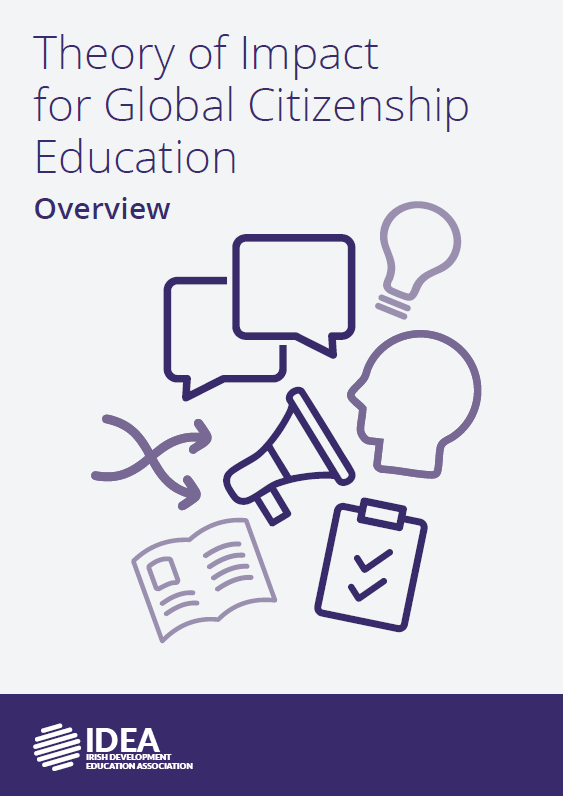Theory of Impact for Global Citizenship Education
IDEA launched its Theory of Impact for Global Citizenship Education in November 2025. Developed in collaboration with our members, this is the first of its kind and provides a consistent approach to measuring impact within the sector.
Overview
The Theory of Impact builds on work done by IDEA over many years to strengthen the sector’s capacity around Results Frameworks. It also builds on work done by our Quality & Impact Working Group, and on the successful roll-out of a Code of Good Practice for Development Education by IDEA and its members. Following a review of approaches to impact measurement in 2022/23, the Theory of Impact model was developed by a Task Group of IDEA members, including WorldWise Global Schools, CBM, Changemakers Donegal, DICE, Financial Justice Ireland, LYCS, NYCI, STAND and an Individual Member, across 2024/25. It was launched in November 2025 and will be piloted by IDEA members into 2026.
How it works
The Theory of Impact model helps us identify how, where and with whom our work is creating positive change, as well as highlighting areas where our impact could be stronger. It also provides a framework for mapping the collective impact of the sector in Ireland and for looking at how this impact contributes to wider social change.
The model has 3 levels – Intermediate Outcomes, Long-Term Outcomes, and Vision. Members can map their work against 14 Intermediate Outcomes. This data feeds into the 3 Long-Term Outcomes to create a broader picture of collective impact by the sector. This will be illustrated by a data visualisation tool, developed for this purpose. With the support of relevant research, it will allow us to articulate the wider societal impact of Global Citizenship Education.
The data will be gathered via an online form, that will be available to IDEA members following the pilot phase.

